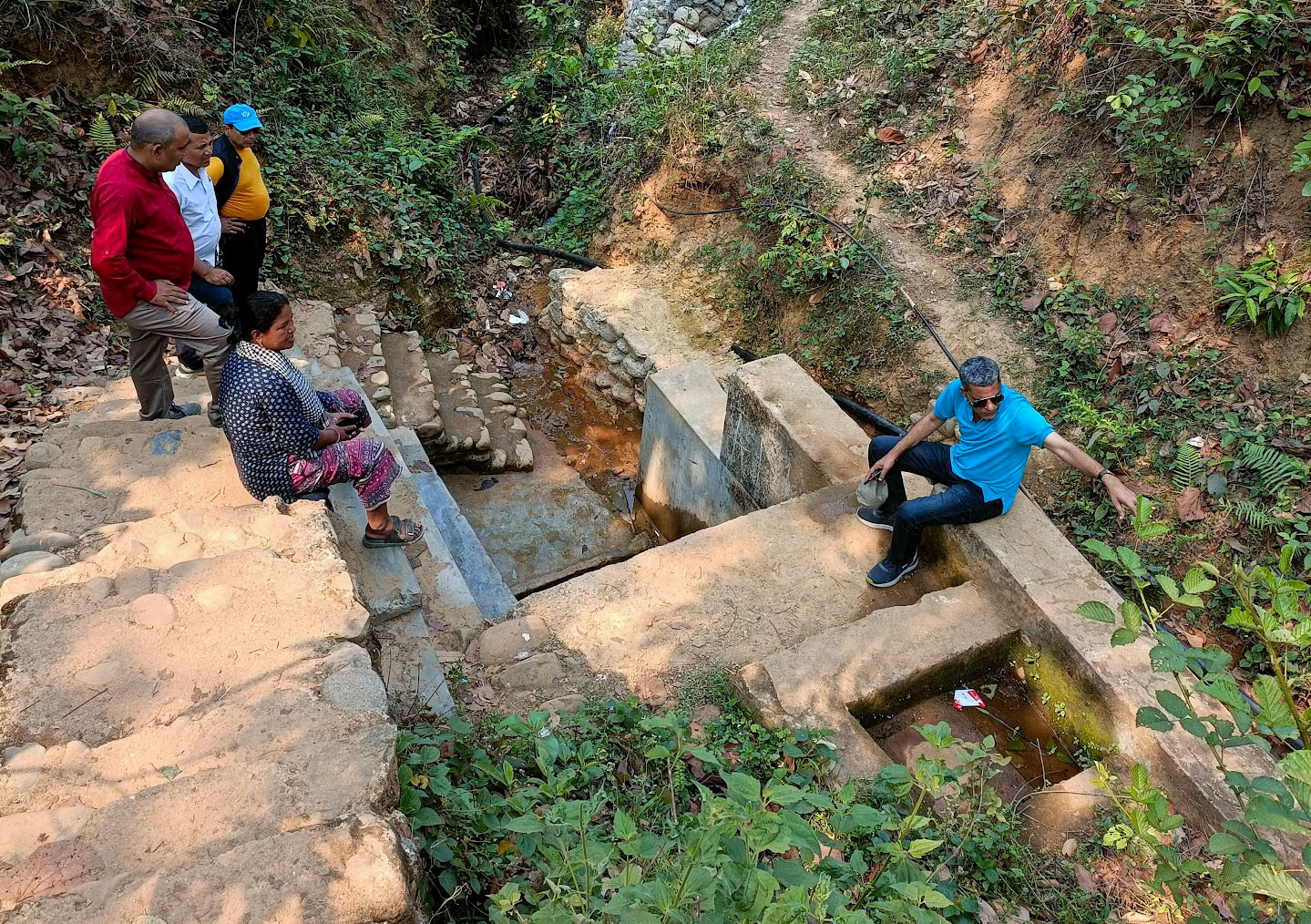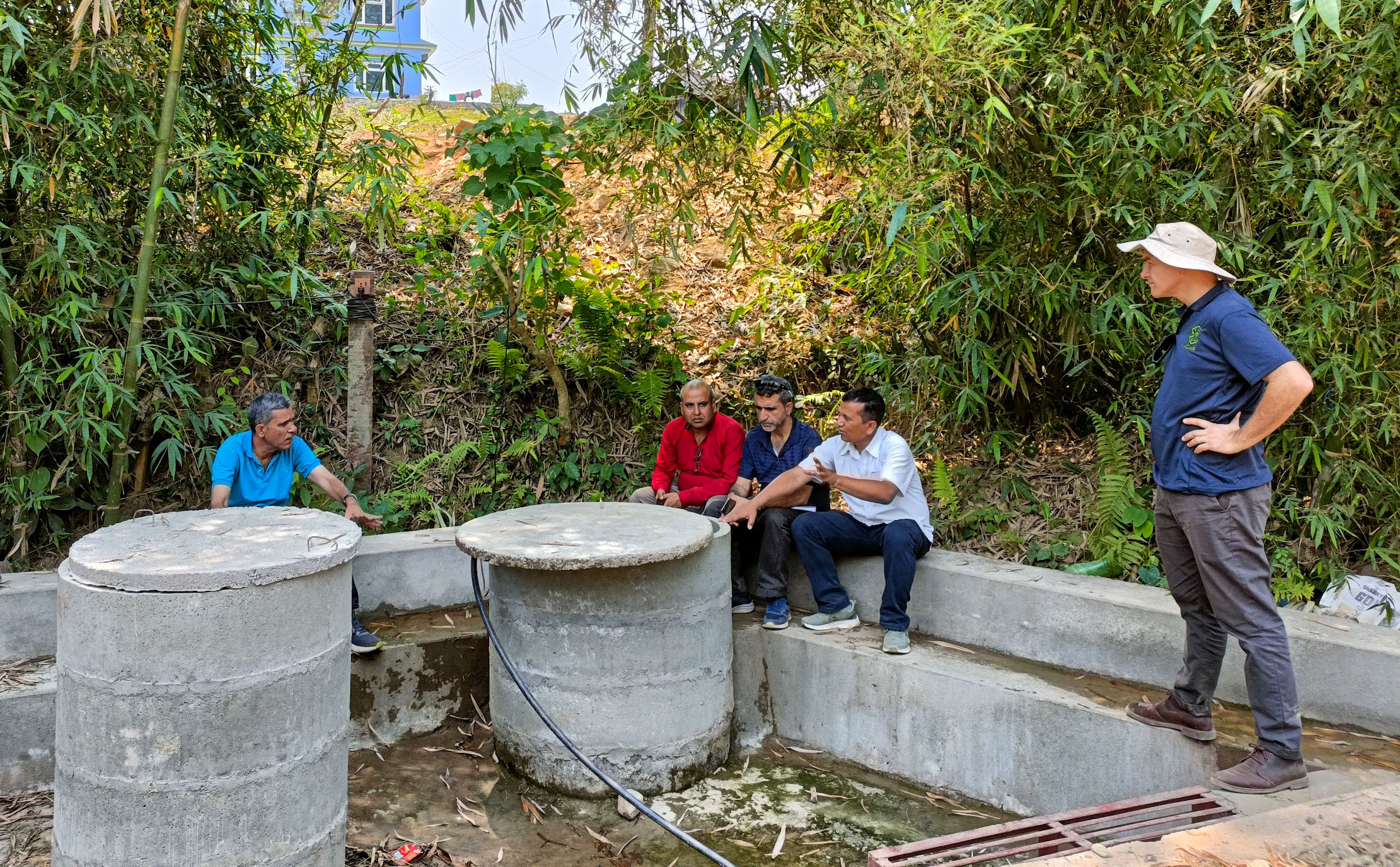A new ACIAR-funded collaborative research project is set to address the critical challenge of declining water resources in Nepal's mid-hills.
Led by CSIRO, the A$2.8 million investment aims to empower local communities, strengthen water governance, and ensure the sustainability of springshed management-vital to the livelihoods of over 10 million people in the region.
Implemented in partnership with Nepalese research institutions, the project focuses on participatory approaches to springshed management and will generate actionable knowledge, enhance capacity among stakeholders, and integrate water management into local and national policy frameworks.
Natural springs are the lifeblood of the mid-hills, supplying drinking water, irrigation, and supporting agriculture and livestock. However, increasing seasonal variability, unplanned infrastructure, and climate change have led to a marked decline in spring water availability. This has disproportionately affected women and marginalised groups, often forcing families to migrate and threatening the stability of rural farming communities.
'Spring water sustains agriculture, livelihoods, and entire communities in Nepal's mid-hills,' explained Dr Shahriar Wahid, Project Leader at CSIRO. 'This project is about more than water; it's about creating resilience and opportunities for communities to thrive in the face of significant environmental and socioeconomic challenges.'
The 4-year project will pilot community-led approaches to springshed management, supported by modern tools like Geographic Information Systems (GIS) and integrated hydrology modelling. These innovations will be coupled with traditional water management practices to develop context-specific solutions.
Dr Wahid highlighted the collaborative nature of the project: 'We're not just conducting research; we're co-creating solutions with communities and policymakers. This approach ensures that our strategies are practical, sustainable, and scalable.'
The project aligns with Nepal's National Water Resource Policy 2020 and the National Adaptation Plan 2021. It directly supports efforts to strengthen local adaptation planning and bolster resilience against climate change.
Central to the initiative is capacity building among local stakeholders, emphasising empowering women and marginalised groups. Recognising the disproportionate burden they bear in securing water for households, the project aims to make their voices central to water governance.

ACIAR Research Program Manager, Water, Dr Neil Lazarow said that empowered communities are at the heart of sustainable water management.
'By working closely with local governments and civil society, we're creating a blueprint for springshed management that prioritises inclusion and equity, and responds to the local impacts of climate change.'
The project contributes directly to ACIAR's strategic objectives, including improving food security, managing natural resources, and promoting gender equity. It also supports the broader goals of the Australia-Nepal memorandum of understanding on water resource management, signed in 2022.
'This initiative embodies ACIAR's commitment to addressing complex challenges through innovative partnerships that combine research, government and civil society,' added Dr Lazarow.

Nepalese research partners, including the Nepal Development Research Institute (NDRI), bring invaluable local expertise to the project. Together with CSIRO, they will focus on translating research findings into actionable policies and plans.
Shreya Bajimaya from NDRI underscored the importance of the partnership.
'Our collaboration with ACIAR and CSIRO will help us address the urgent need for sustainable water governance. This is not just a research project; it's an opportunity to transform how we manage and protect our most critical resource.'
As the project gets underway, it promises to provide a replicable model for springshed management in mountainous regions globally, demonstrating the power of international collaboration in tackling shared environmental challenges.
Learn more about the research via the ACIAR website.






